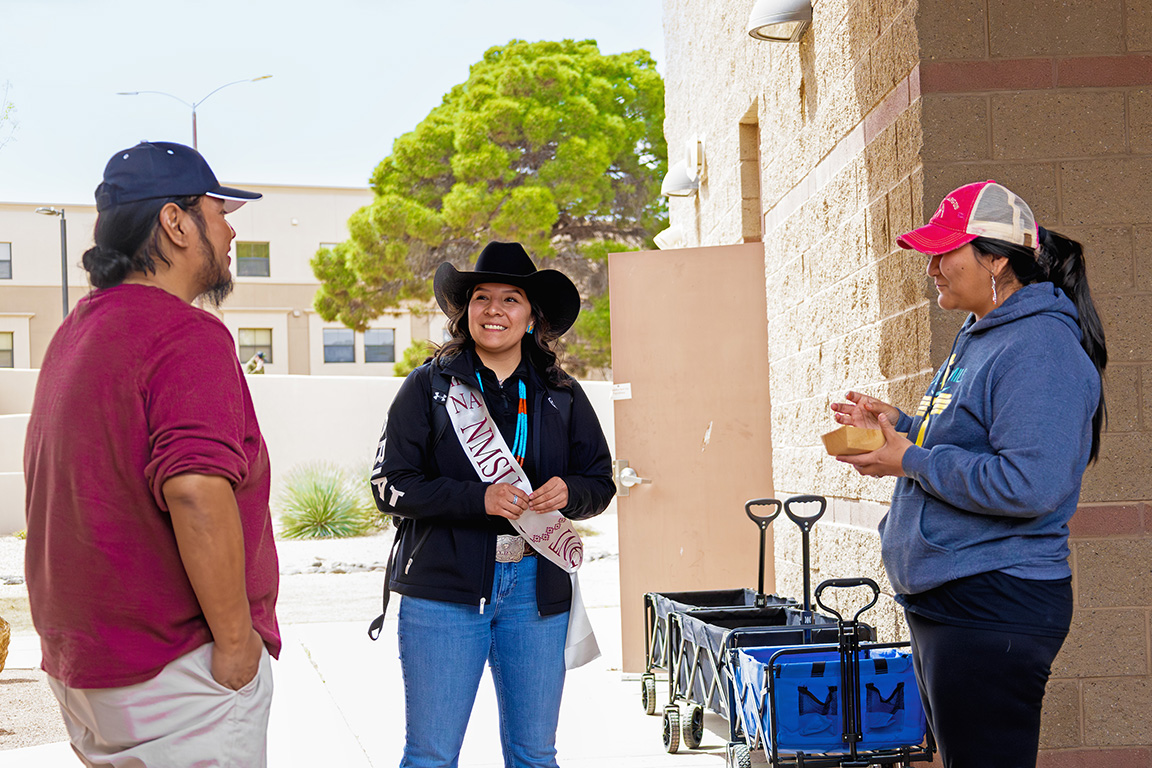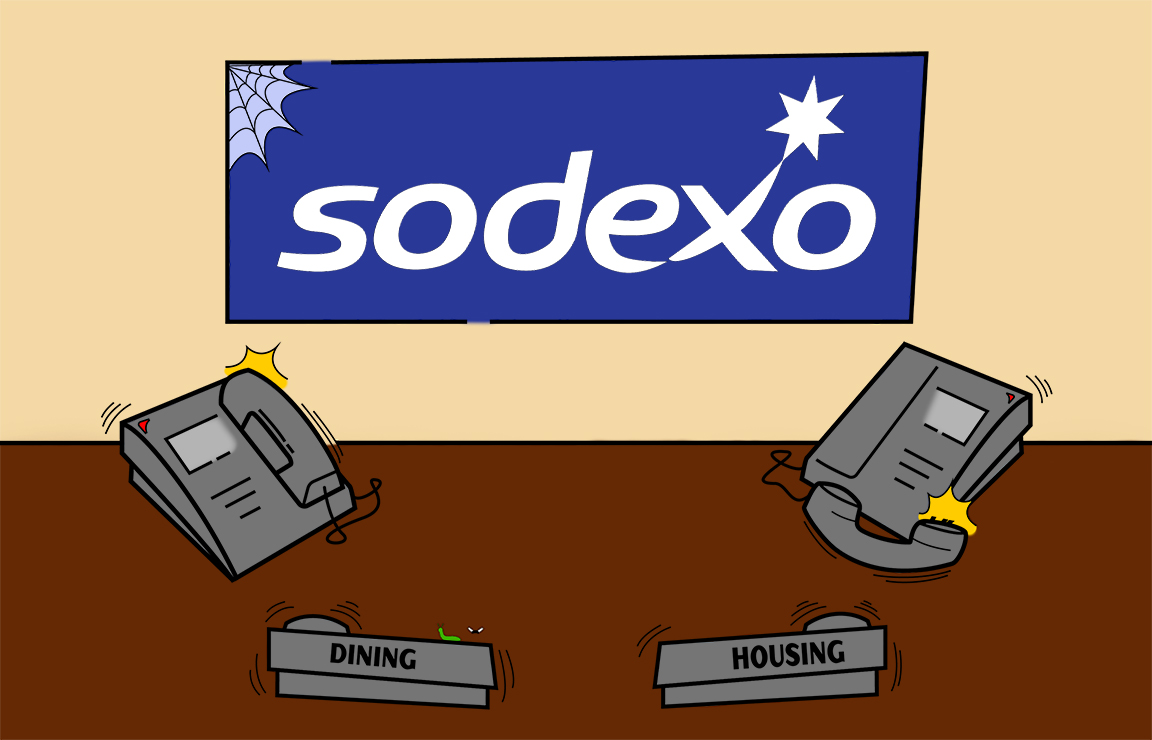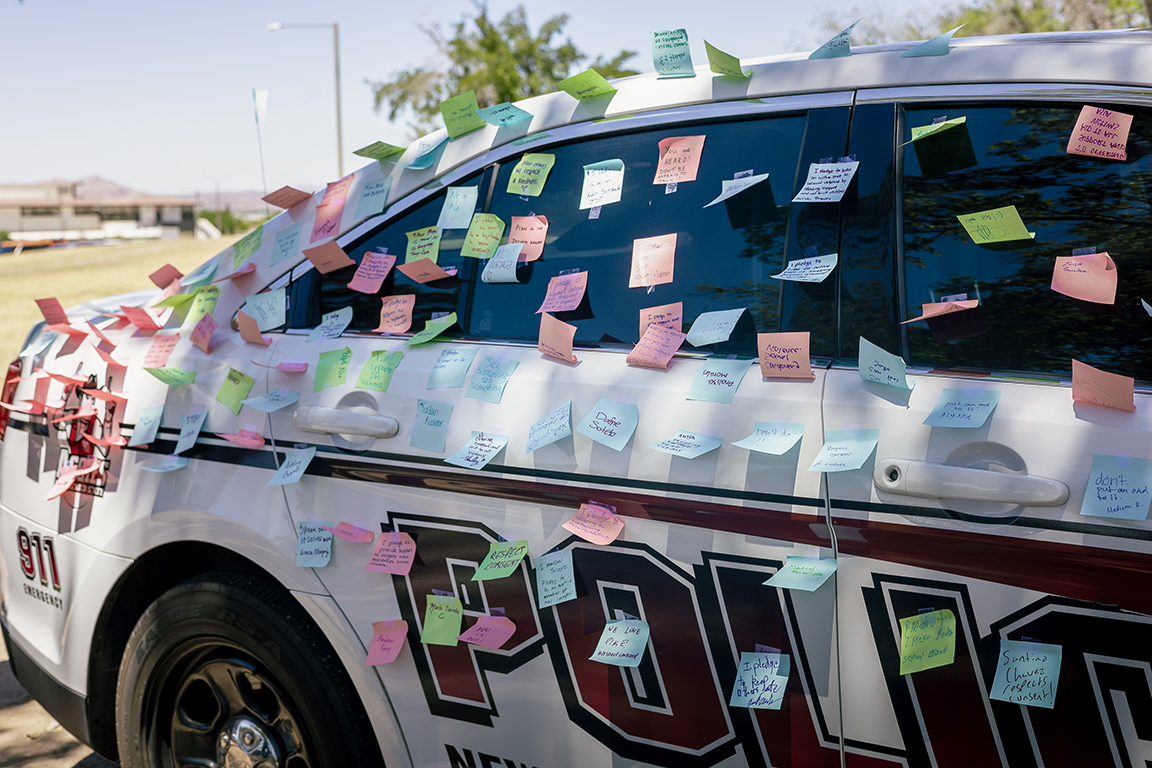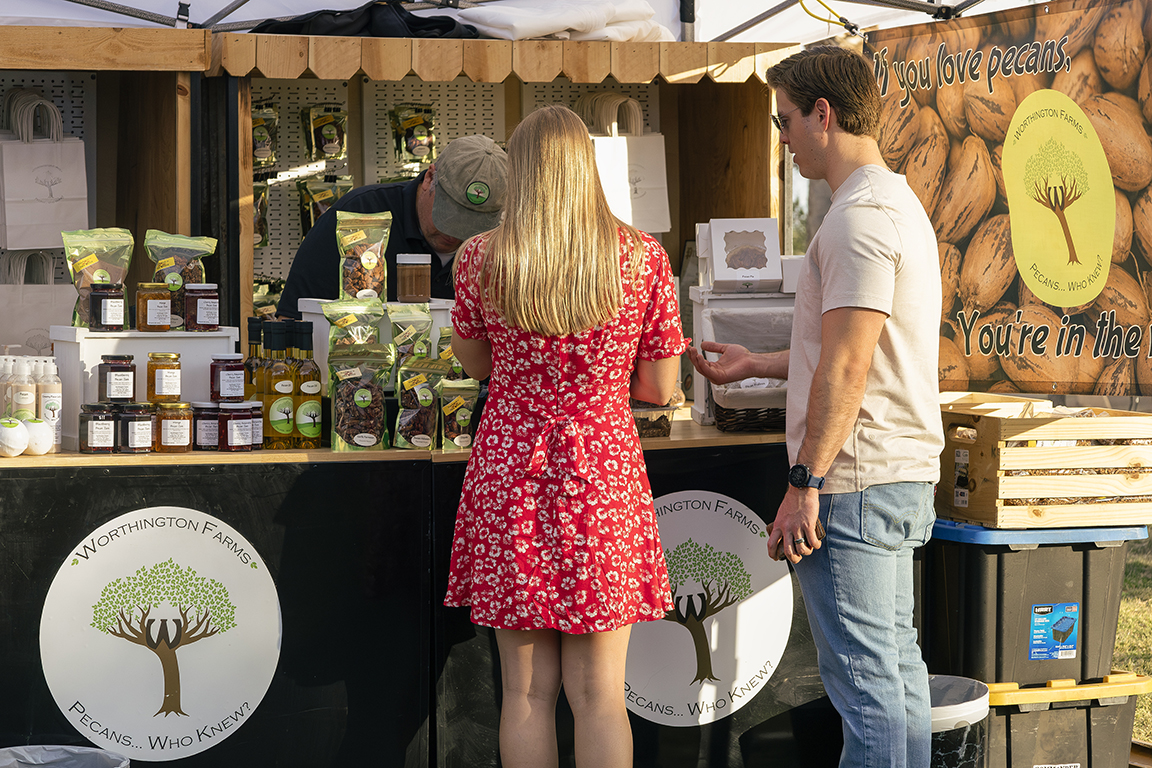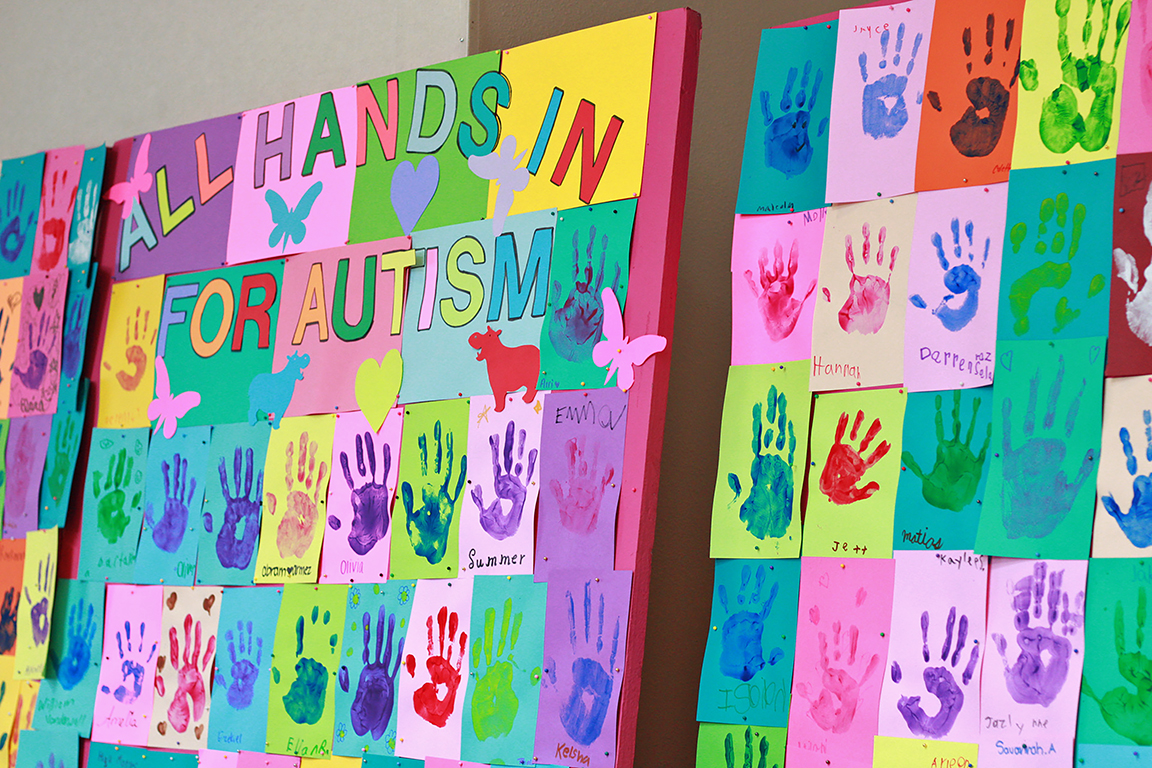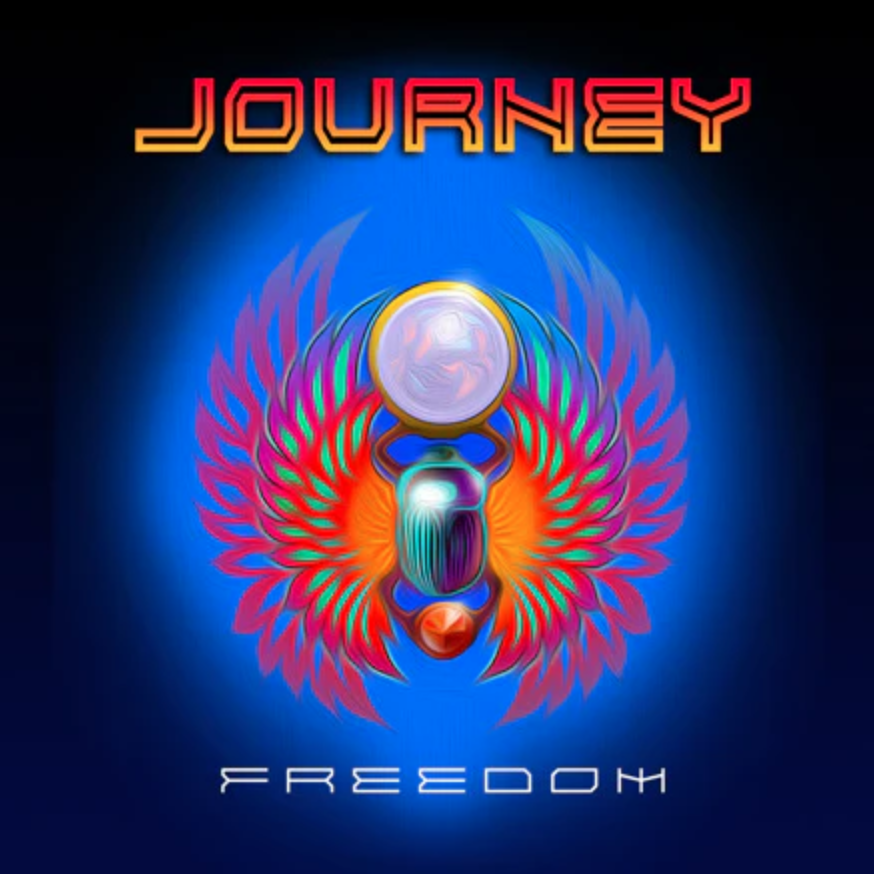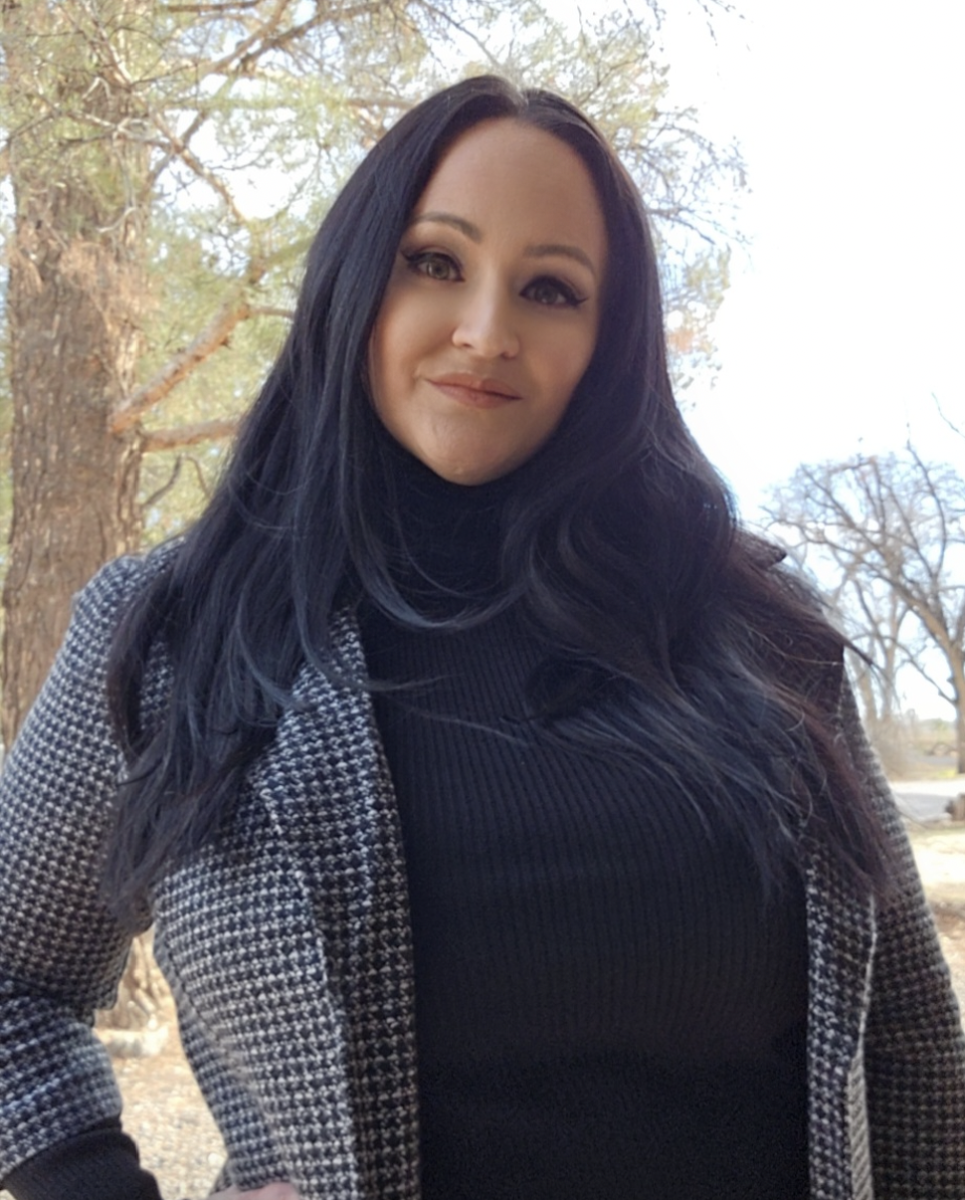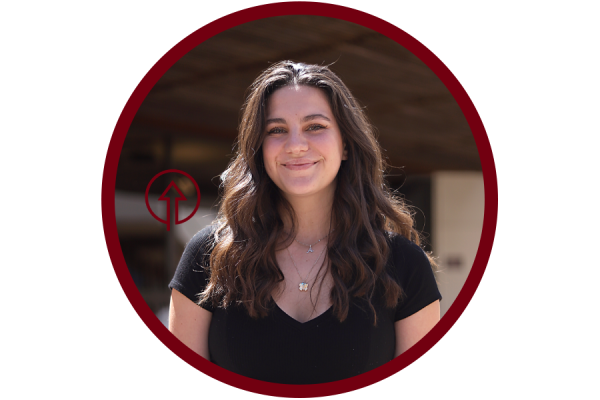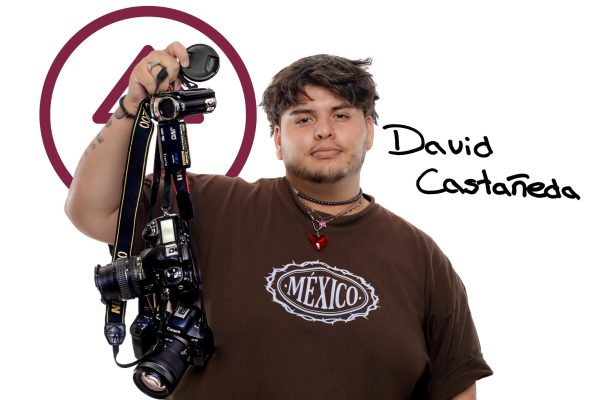This story contains mentions of sexual assault. If you or someone you know has experienced sexual assault or abuse, please contact the National Sexual Assault Hotline at +1(800) 656-4673, La Piñon’s 24-Hour Crisis Hotline at 575-526-3437, or any of the organizations listed within this article.
“Consent is consent. Everyone should know about it.”
New Mexico State held its first annual “Consent is F.R.I.E.S.” event on April 9, courtesy of the Office of Health Promotion. Particularly on college campuses, where students are often drinking and partying, organizers thought an event where students could learn more about consent while enjoying a snack seemed ideal. In order to receive their free French fries, students simply had to name a component of the F.R.I.E.S. acronym:
Freely given
Reversible
Informed
Enthusiastic
Sober
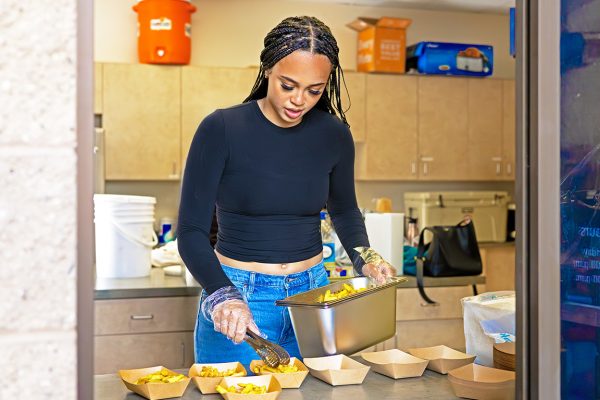
“Unfortunately, for many college campuses across the nation, there are really high sexual assault rates,” said Esther Lapice, Aggie Health and Wellness Center therapist. “Some people are not really informed as to what that looks like. We sometimes have an image that we see in the media as to what a sexual assault victim looks like, what a perpetrator looks like, and things like that, and being able to have these conversations, being able to better understand what services are available for survivors, is definitely something that’s not only important to NMSU, but just paints a really larger conversation that we as a nation should be having.”
The event was held at NMSU’s American Indian Student Center, where director Michael Ray says that the discussion is needed more than ever — particularly with the university’s position on the border and as an indigenous-serving institution.
“We have seen, unfortunately, in our Native American communities, the missing murdered indigenous women where consent has not been given, and unfortunately, we have people who are no longer with us anymore, both men and women,” Ray said.
There were a number of other organizations present at “Consent is F.R.I.E.S.”, including Chicano Programs, Black Programs, ASNMSU, and the Office of Institutional Equity. Each group was there not only in support of the message, but also to share resources and information about consent.

La Piñon, the Las Cruces sexual assault response agency, was also present at the event. In addition to providing services such as examinations and counseling to sexual assault survivors, the organization has an advocate present on NMSU campus. Located in O’Donnell Hall on Tuesdays and Thursdays, Jacob Claeps is there to provide support to any students who need it.
“Having other services is important because it creates the community that we’re all coming together, because we don’t want this to continue happening on campus, as it has just a couple of weeks ago,” said Cecy Corona-Madrid, Health Education Specialist. “So, we want to create a better environment, educate the students a little bit more. And if we all come together, I think that’s what makes a difference.”
These various resources and organizations available on campus noted that they hope they are not the only people willing to help in risky situations. The groups emphasized the importance of students knowing the F.R.I.E.S. acronym, not only for their individual benefit, but to help one another, as well.
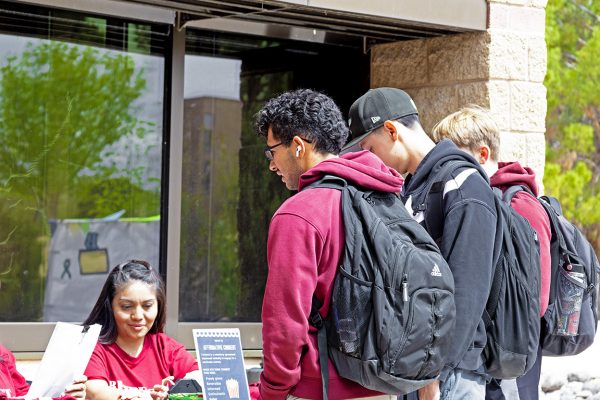
“If you’re out there partying and see somebody in trouble, help them out, don’t leave them behind,” said Christina Gomez, an Office of Institutional Equity employee. “If you go with a group of people, please stay together. Don’t leave nobody behind. And if you see somebody doing something that is not appropriate, call it out. Say something. Don’t just be a bystander.”
If you or anyone you know has experienced sexual assault or abuse, please contact the National Sexual Assault Hotline at +1(800) 656-4673. For local help, you can find support at any of the above campus services or via La Piñon’s 24-Hour Crisis Hotline at 575-526-3437 and their website, www.lapinon.org.


